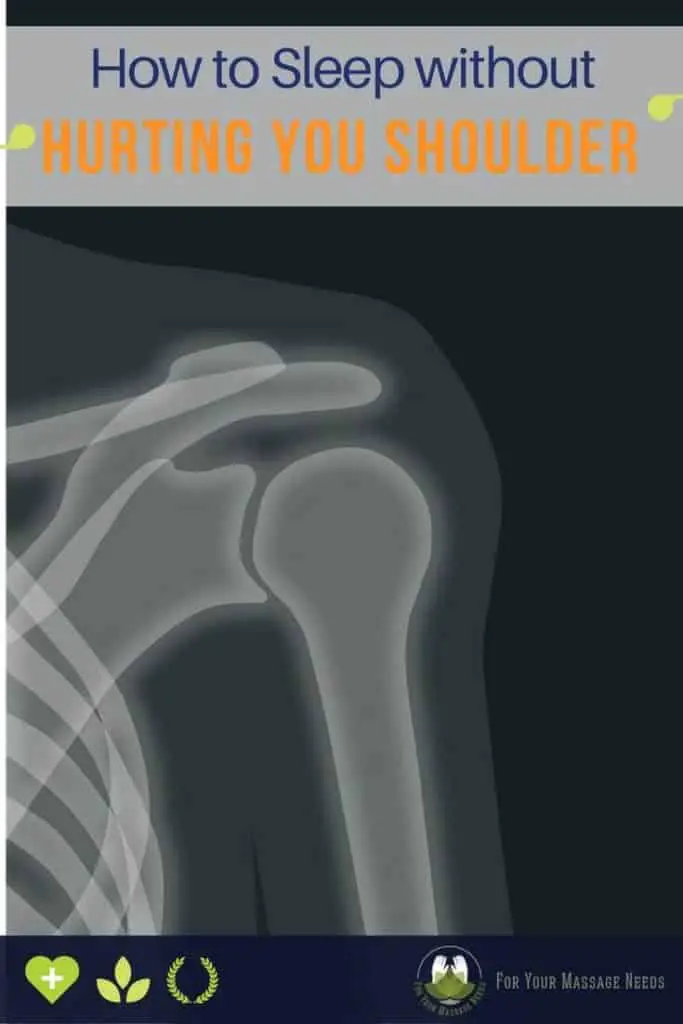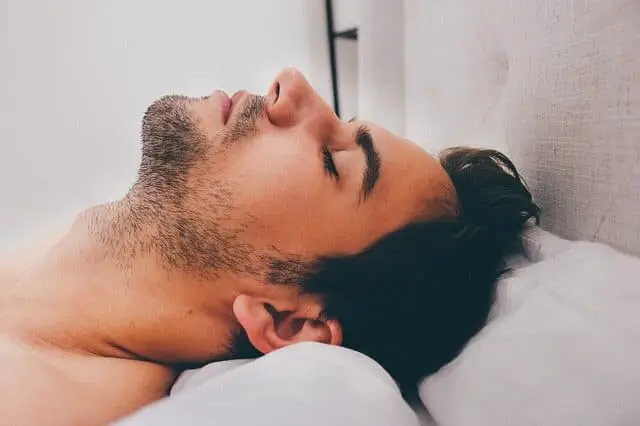Whether you have a shoulder injury, or as a result of sleeping on your side you’re experiencing shoulder pain, there are some things you can do to sleep without hurting your shoulder any further.
Contents
Why Sleeping on Your Side May Be Causing Your Shoulder Pain
Our shoulders are more complex that you’re probably aware of. There is a group of muscles around the ball-and-socket you can feel pivoting in your shoulder.
It’s fairly easy to strain or damage one or more of these muscles. Even the pressure of sleeping on your shoulder nightly can cause some serious shoulder pain over time.
It’s believed around 15% of adults sleep on their sides, and a further 41% sleep in the fetal position. Both positions put pressure on the shoulders and can cause pain over time.
The constant pressure causes the tendons to become inflamed, often called impingement syndrome, or rotator cuff tendinitis.
Early signs are slight pains, stiffness in the shoulder when you first wake up, and pain when lifting heavy things.
If left untreated these symptoms will only progress to much more serious pain, loss of mobility in your shoulder, and permanent damage to the tendons.
Here are a couple of steps you can take to start sleeping without hurting your shoulder:
Sleep on Your Back to Relieve Pressure on Your Shoulder
Depending on where the injury is in your shoulder and what type of bed, mattress, and pillows you have, sleeping on your back is likely to be the best position to aid rehabilitation.
If you’re a side sleeper, or even a stomach sleeper, it can be difficult to train yourself to start sleeping on your back, but there are some good incentives.
If you’re dealing with shoulder pain the main reason to resolve the reason should be to make your night more comfortable by relieving the pressure on your shoulder, however other benefits include:
Reducing the appearance of wrinkles – When your face is pressed into a pillow on your side you’re wrinkling your skin. On your back your skin is free to breathe.
Better for back alignment – Sleeping on your back keeps your spine in its most natural alignment. It’s often recommended for back pain and is much better for your back health in the long-term. – You can learn how to sleep on your back here.
Can reduce acid reflux and heartburn – If you suffer from heartburn or acid reflux you know how frustrating getting a good night’s sleep can be. While it doesn’t help everyone, it certainly works for some and worth trying.
Relieve the Pressure on Your Shoulder with a Pillow
Ideally, you will change your sleeping position to relieve any pressure on your shoulder, but this is easier said than done.
The side sleeping position is still the most comfortable for most people, even with a painful shoulder injury.
Try wrapping a long pillow or using two pillows to add a layer of support beneath your shoulder, and above the shoulder between your head and shoulder.
Even a thin pillow might not feel like it’s doing much. But it’s actually taking a lot of pressure off the should and will make a huge difference to how you feel.
Listen to Your Body
I’ve worked with a number of people who live with a great deal of pain in their shoulders and there are often some constants when I get to the bottom of how it got to this point.
Firstly, a lot of people don’t react when they start experiencing the early signs of shoulder pain as a result of their sleeping position.
You should always listen to your body. If you feel a twinge in your shoulder, then start looking at the reasons why this pain is starting.
Secondly, do something about it!
I know how soothing and comforting it is sleeping in a position you’ve slept in your whole life, and it’s very difficult to change. But you have to.
Shoulder pain from sleeping positions is very common, but it’s easy to resolve.
Try the advice above, change your sleeping position and use pillows to relieve the pressure being put on your shoulder.
See how you get on. You’ll notice a difference the first night.
Oh, and of course, don’t underestimate the healing power of massages for shoulders, and the other health benefits you can enjoy with massage therapy!

I’m a MA, (CMT) Certified Massage Therapist, Licensed Massage Therapist (LMT), and Reiki Master — I’m a licensed massage therapist with over 10 years of experience in the industry.


